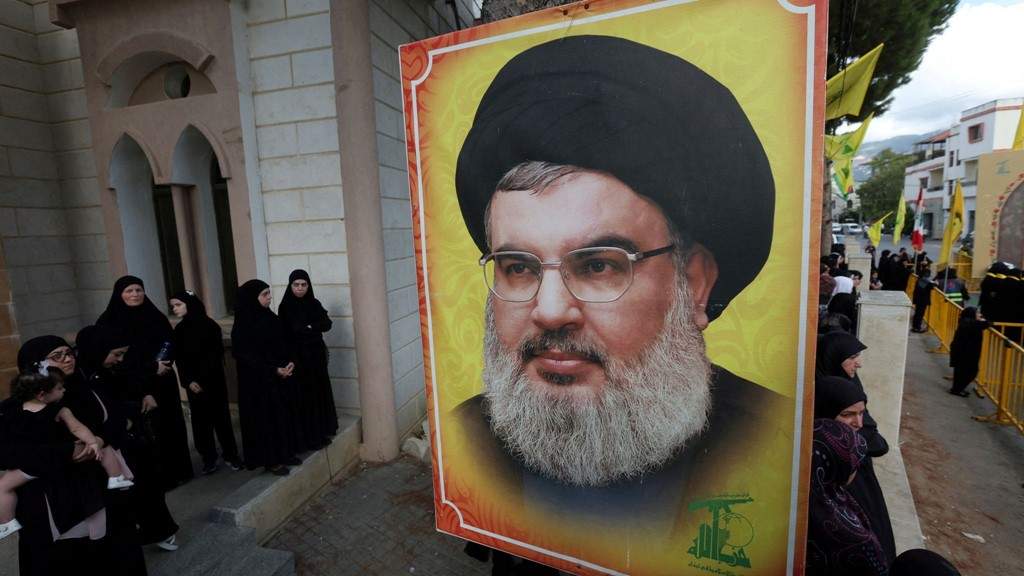In a dramatic turn of events, the Israeli army has announced that Hezbollah leader Hassan Nasrallah has been killed in a series of airstrikes in Beirut. This development has sent shockwaves throughout the region, with many speculating about the potential consequences of Nasrallah’s demise.
According to Deborah Haynes, our security and defense editor, Hezbollah will be in “absolute disarray” following the loss of their leader. “You would imagine that they would not want to launch an immediate retaliation,” she notes, suggesting that the group will likely take time to mourn and regroup before deciding on their next move.
Haynes believes that the strike that killed Nasrallah was a long-planned operation, rather than a spontaneous response to recent events. She also draws parallels with the assassination of Qasem Soleimani, the leader of the Quds Guards, in Baghdad during Donald Trump’s presidency, suggesting that the response to Nasrallah’s killing is likely to be “far bigger.”
Who is Hassan Nasrallah?
Hassan Nasrallah is the secretary-general of Hezbollah, a Shia political and military faction based in Lebanon. He is considered one of the most powerful individuals in the country, with an estimated 100,000 fighters at his disposal. Nasrallah has been a key figure in the region, leading Hezbollah in conflicts with Israel and playing a significant role in the Syrian civil war.
Born in 1960 in Beirut, Nasrallah rose to prominence through his involvement in the Amal movement, a political and paramilitary organization. He joined Hezbollah in 1982, the year it was formed, and quickly rose through the ranks. Under his leadership, Hezbollah has become a major regional military and political power, with close ties to Iran and other Shia groups.
The Rise of Hassan Nasrallah
Nasrallah’s rise to power began in the 1980s, when he joined Hezbollah as a young man. He quickly gained recognition for his leadership skills and his commitment to the group’s ideology. In 1992, he became the leader of Hezbollah after the death of Abbas Musawi, who was killed in an Israeli helicopter gunship raid.
Under Nasrallah’s leadership, Hezbollah has been involved in several conflicts with Israel, including the 2006 war. He has also played a significant role in the Syrian civil war, supporting the Assad regime and fighting against rebel groups.
The Impact of Nasrallah’s Death
The death of Hassan Nasrallah is likely to have significant consequences for the region. Hezbollah will need to regroup and decide on their next move, which could involve a major escalation of violence against Israel. The Iranian government, which has close ties to Hezbollah, will also need to respond to the situation.
As the situation continues to unfold, one thing is clear: the death of Hassan Nasrallah marks a significant turning point in the region, with far-reaching implications for the future of Lebanon, Israel, and the wider Middle East.
Key Points:
- Hezbollah leader Hassan Nasrallah killed in Israeli airstrikes, according to Israeli army
- Five hours of continuous strikes hit Lebanese capital, Beirut
- Hezbollah will be in “absolute disarray” following Nasrallah’s death, says Deborah Haynes
- Strike that killed Nasrallah was a long-planned operation, rather than a spontaneous response
- Response to Nasrallah’s killing is likely to be “far bigger” than previous conflicts
